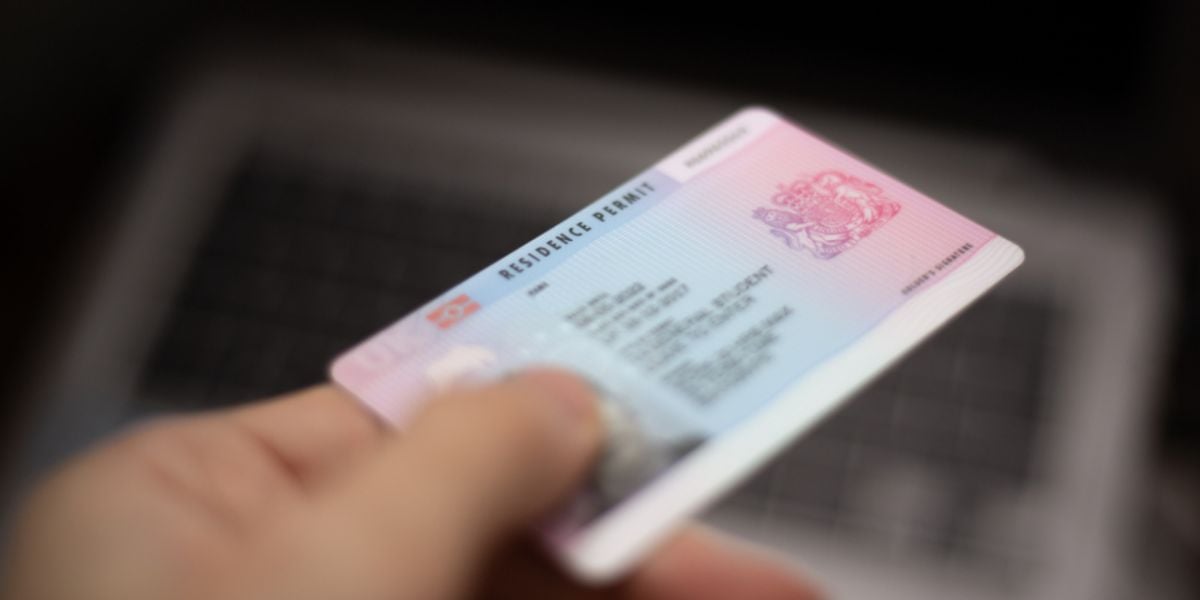
Obtaining a residency permit is crucial if you want to remain in Greece as an expat, allowing you to access many opportunities, including work, studies, and investment. To do so, non-Greek citizens need a residence permit, even if they are EU/EEA citizens. Any foreign nationals wanting to remain in Greece beyond three months require a residence permit. Those in Greece with a view to the long-term, such as with citizenship, require a residence permit to build up evidence of a continued stay in Greece (five, then seven years). Therefore, it is important to consider all the information and correct documents you need to proceed with the application process.

Types of residence permits for Greece
If you want to stay in Greece for over 3 months, then you will require a residence permit. As stated in Greece's migration laws, there exist specific purposes that residence permits can be issued, for example:
- For the purpose of employment
- Studies, voluntary work, academic research, and vocational training
- Family reunification
- Humanitarian reasons, other reasons and unforeseen circumstances
- Human trafficking and migrant smuggling victims
The purposes of the permits are not always obvious. This can be seen in the example that a residence permit for “work purposes” is applicable for entrepreneurs and investors in Greece, not only employees. The purpose listed above for “other reasons” permits real estate owners, renters and financially independent applicants to file for a residence permit.
Procedures for getting a residence permit in Greece
These are the steps required to receive a residence permit in Greece:
- Gather together the required documents for the D Type National visa and apply.
- Travel to Greece with your D Type National visa, and then apply at your local/regional Aliens department
- If your application is accepted, you will then be required to go back to your regional Aliens department to give your biometric data
- After this final step, you will receive your residence permit card. It can take from 1-3 months to get your residence card, and it is all dependent on the workload of your regional Aliens Office.
The D type National visa application process
The road to getting a residence requires first that you get a D-type National visa. A D Type National visa enables the holder to remain in Greece for a year, thus, it is convenient for the holder to apply for a residence permit as the National visa gives them enough time to complete all the necessary stages of the application process. A positive benefit of holding the D-type National visa is that you are free to visit other Schengen states.
Obtaining the D type National visa is fairly straightforward, as long as you are aware of the steps and the required documents that must be submitted for the application. Depending on your home country or place of residence, you are obliged to attend an appointment at your nearest Greek consulate, or in countries such as the UK, at a Visa centre, where representatives on behalf of the Greek consulate undertake the role of processing the visa.
The appointment for your D type National visa is so the Greek Consulate or Visa Centre can interview you on your reasons for traveling to and remaining in Greece. At the same, you are required to submit all the necessary documents and photos and pay the fee for the application.
What are the required documents for the D type National visa for Greece?
The required documents for the National visa are listed below:
- An application form completed, which can be found here
- A recent “passport style” photo of the applicant, which must have been taken in the last two months. The photo must conform to the size regulations for the Greek (35x45mm)
- A travel document or passport that is accepted by the Greek consular authorities.
- A Criminal record certificate, sometimes referred to as a “police certificate” is required from your home country of residence. For your reference, see the example of the UK's ACRO Criminal record certificate
- Valid travel and health insurance is required that has coverage for at least a year. The minimum level of coverage must be enough to cover repatriation based on medical reasons, emergency medical care, and hospital care.
- A medical certificate from the applicant's home country is needed; this is produced based on an examination and tests by a doctor. The purpose of the certificate is to prove that the applicant does not pose a threat to public health through any diseases.
- Additional documents relating to entry and stay in Greece. In the instance that the applicant wants to study in Greece, they would need to provide:
- a certificate of registration from their university or educational institution.
- Proof that the applicant can financially support themselves. They must prove that they have a minimum of 400€ per month to cover the cost of their studies and additional expenses.
The majority of the time, the fee for the D-type visa for Greece is 180€. However, in some circumstances, such as family reunification, the visa fee is reduced to 90€
What is the residence permit card application process in Greece?
Depending on the complexity of your application, the application must be submitted in person by the applicant, their lawyer, or a relative of the first degree.
The application must be submitted to the Aliens and Migration Directorate of the Decentralised Administration or the Directorate of Migration Policy of the Ministry of Interior.
If the applicant were applying for a residence permit card in central Athens, they would go to the Aliens and Migration Decentralised administration nearest to their current address in Athens. In this case, as stated, the applicant would submit their documents to the Aliens and Migration Office “Athens A” (Δ/νση Αλλοδαπών & Μετανάστευσης Αθηνών Α), located at Salaminias 2 & Petrou Ralli, 118 55. For further information, you can contact dam_a_info@attica.gr.
The Greek Government's Migration Portal is useful as it provides all the addresses of the Aliens and Migration administrations, which is helpful, especially if you're residing on an island and you want to find out where your nearest migration office is.
As part of the application process for the permit, applicants are fingerprinted. Biometric data is taken by the migration authorities to safeguard legitimate applicants, and it is an easier way for a person to prove their identity if the biometric data exists.
Therefore, if a representative such as a lawyer or other authorized proxy applies in place of the applicant, then the biometric data will be taken at a later date. Without Biometric data being collected, the permit cannot be issued.
Required documents for the residence permit in Greece
To be issued the residence permit, applicants need to provide the below-listed documents:
- An application form – fully completed.
- A clear scanned copy of a valid passport/travel document with a valid visa. Note that all pages of the passport or travel document must be scanned.
- A receipt for the administration fee is required. This is paid for the processing of the permit application. The administrative fee of €16 is paid using the online e-paravolo system, which can be done online, at any bank, or ELTA Post Office. See the e-paravolo website here
- A receipt is needed for the fee (150€) paid for the residence permit card; this is because it is preferred if this is paid before.
- A private insurance policy that meets the full coverage requirements for the permit. If you have an insurance policy from your home country, you can submit it but it must be translated into Greek. You can find a translator through the Registry of Certified Translators through the Ministry of Foreign Affairs
- Four passport-style color photos are required, and copies are on a CD.
- Proof that you can support yourself financially (applicable to your application purpose), and recent bank statements can be used as evidence.
- Extra documents to support your application type, i.e., a work contract for a residence permit for employment reasons or a letter from your educational institution if your purpose is to study in Greece.
Tips for getting the permit
The fee to be paid for the residence permit card is €150. This is valid for one year and is also paid using the e-paravolo system. In some cases, it is possible to pay at the Aliens and Migration Administration during your application; ask the officer assisting you with your application.
As clarified above, you can pay the e-paravolo online or in your local bank, e.g., Piraeus. The e-paravolo can also be paid at Hellenic Post branches (ELTA), but it takes longer to process than online or through the bank.
With the passport photos and digital CD copy, it is sensible to have this ready before you go to the appointment. But, it is important to make sure that you get your passport photos and CD copy from the shop or vendor closest to the Aliens and Migration Administration you are applying to (they are usually very close to the entrance or opposite the building). Unfortunately, this is because most migration offices have exclusive mutual agreements with these photo shops to produce passport and CD copies. Thus, if you do not get your copies from the associated shops, you risk having yours rejected and having to pay a second time.
Residence permits for property owners in Greece
This type of residence permit is issued to those investing in property in Greece is commonly known as a Golden visa. Applicants have to provide a minimum investment of €250,000.
- Residential or commercial
- Buying an area of land for construction or agriculture
- Your Property was inherited or received as a gift.
- If you have been renting a hotel or tourist residence for at least 10 years.
In most cases in Greece, the choice is buying real estate. An applicant can do this on their own or through an EU-based company that they hold a majority stake in.
The Greek government is currently in consultation to change the minimum investment from €250,000 to €500,000; however, this has not come into force yet.
The application procedures for property investment residence permits in Greece
The process of the application for property investment in Greece can be done in person or through their lawyer if power of attorney has been given.
Below are the steps to be taken to apply for a property investment residence permit:
- A Greek tax number, known as AFM (ΑΦΜ), must be acquired
- The applicant must also open an account in a Greek bank
- Check the legal purity of the real estate project WFW
- A purchase and sales agreement must be signed.
- Once they hold their land register certificate, the taxes for the property must be paid.
- The application fee must be paid, which is €2,000, and for each additional family member added to the application, it is €150.
Good to know:
Property owners do not need to get D-type National Visa. The Shorter Schengen visa is applicable.
Typically, when investing in property in Greece, due to the bureaucracy and legal complications of making the application, property owners tend to use lawyers who specialize in property investment residence permits.
For further information, see the Greek Government's Page on the investment residence permit (Golden visa).
Residence permits for financially independent persons in Greece
To meet the criteria of the residence permit for financially independent persons in Greece, the applicant must prove that they have above €24,000 in a Greek bank account.
If the individual applying is a pensioner, they have evidence that pension substantiates over €2,000 a month.
Financially independent persons with family
If the applicant wants to also have their family join them in Greece, then they have to provide more than the initial €24,000 stated. If the applicant's partner joins, it adds an increase of 20% and 15% with each child.
Unfortunately, this residence permit does not permit the possibility for the individual to work in Greece. They would have to apply for a new permit.
The fee for the application is €1,000; for pensioners, it is reduced to €150.
Greek residence permit through employment
Summary of the process
To obtain the residence permit through employment, your employer must go through the process of receiving dispensation from the local decentralized administration.
Your employer has to submit a Tax clearance note to show that they can pay you the monthly wage stated in your contract.
In any case, the contract should run for a year. The only negative is that in each instance employers apply to hire a foreigner, they are obliged to pay a €200 fee.
If you are thinking of getting a residence permit via employment, you should be aware of rights regarding pay as a foreign worker. You have the same rights as other workers. The monthly minimum wage for employees is €713, or €31.85 a day.
Sponsorship by employer
- To enter Greece, initially, you will need a D-type national Visa. As soon as you enter Greece, you should apply for a residence permit stating your purpose as employment. This should be done immediately, as the period to wait for the processing of the application can be lengthy.
- The employer has to give sponsorship for the nominated position which the applicant will take and is for the work visa.
- To make a distinction, work permits are only granted to foreigners living in Greece on the basis that there are no Greeks to fill the role.
- In the next step, an application should be submitted by the employer to the nearest Public Employment Administration office (OAED/ΔΥΠΑ), and a fee must be paid.
- Following a successful application, a foreign worker should then apply to get a tax number (AFM)
- With cooperation from their employer, the foreign worker should sign-up for the social security scheme (IKA), which is insurance that covers sickness, maternity leave, disability, and death. Before this, the employee must register with a Citizen's Service Centre (KEP) to get their social security number (AMKA).
Key documents for the residence permit in Greece through employment are:
- All the required documents for the resident permit (see above)
- Certification from Public employment administration (OAED/DYPA) to work.
- Proof of a one-year contract
Residence permit for Studies in Greece
If a foreign national is accepted to study in a Greek university or equivalent higher education institution, then they qualify for a residence permit through their studies.
To apply for the residence permit for studies, the applicant will require the following specific documents:
- The required documents for the residence permit
- A certificate from the applicant's University confirming they have been accepted to study, including information on modules and the start/end dates of their studies
- Proof of funds to support studies and living in Greece. The applicant should provide bank statements to show proof of at least €400 per month (excluding tuition)
- A health certificate to show that you do not carry any diseases that pose a risk to public health.
- Proof of health insurance to cover the duration of your studies.
The residence permit for studies allows students to work, but only part-time (Less than 30hrs).
Long-term residence permit in Greece
Foreign nationals who have resided in Greece for five continuous years meet the criteria for a long-term residence permit. The permit allows you to work in any other Schengen state, sharing the rights as other EU citizens. However, the permit itself is only available to non-Greek, non-EU citizens, and those without Greek or European heritage.
How do you qualify for a long-term Greek residency permit?
- You must provide evidence that you have lived in Greece legally for 5 continuous years. In this period, they must not have been out of Greece over a total of 10 months, or 6 months consecutively.
- Applicants must demonstrate understanding and skill in the Greek language at, at least, A2 Level and show a knowledge of the culture and history of Greece. The residing period extends to 12 years if the applicant cannot meet this requirement; applicants who have Greek family members are exempted from this.
- The applicant must demonstrate that their annual wage does not fall below the annual minimum wage of €9,982 (2023)
- Registration address in Greece, showing proof of where you are residing (such as Taxisnet and a contract).
The long-term residence permit application fee is €150, and for the permit to be ready, it takes around 6 months. Once the permanent residence card is received, you have five years until you must renew it. The permanent residence gives the holder authorization to conduct business and work in Greece.
We do our best to provide accurate and up to date information. However, if you have noticed any inaccuracies in this article, please let us know in the comments section below.








